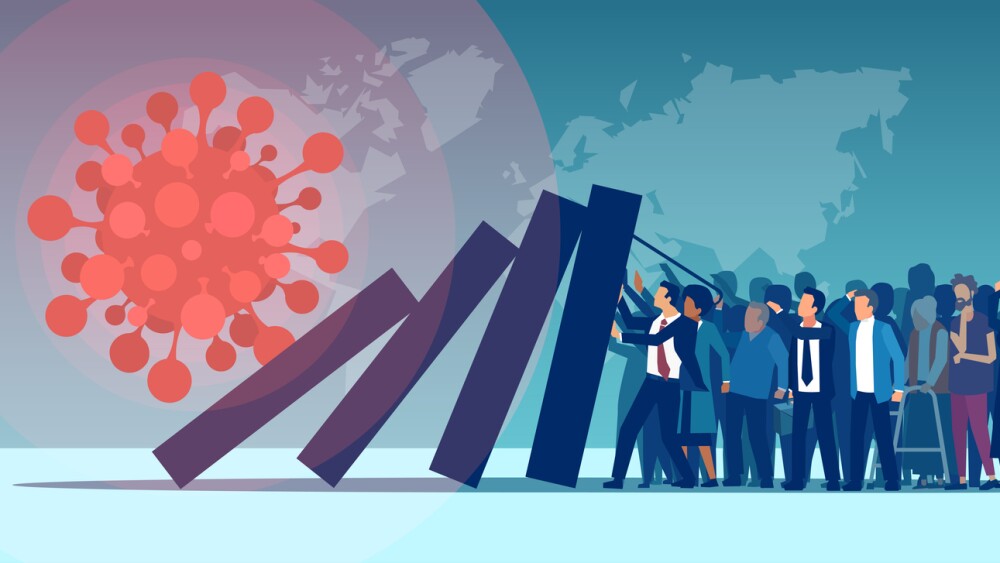AI/ML applications are being deployed at large pharmaceutical companies, but in order to truly maximize their potential, better infrastructure is needed. AION Labs believes it is answering that call.
Yair Benita, Ph.D., chief technology officer, AION Labs/courtesy of Tsipi Haitovsky
Artificial intelligence and machine learning applications are not the future of drug development; they’re already here, being deployed at large pharmaceutical companies like Pfizer and Merck KGaA.
For big pharma to truly maximize AI/ML’s potential, however, better infrastructure is needed.
“If you ask people, ‘What do you think drug discovery and development will look like 20 years from now?’ Almost everybody gives you a very digital vision, [where] everything will be simulated,” said Yair Benita, Ph.D., chief technology officer at AION Labs. “Nobody says, ‘I’m going to have a huge lab with thousands of biologists.’
“But when you look at what’s happening in reality, the technology doesn’t push pharma forward fast enough or well enough. There are many obstacles in bringing technology to pharma.”
Benita will lead AI/ML and pharmaceutical leaders in a brainstorming session at the upcoming Biomed Israel conference, May 16th-18th, entitled “AI tapestry: optimizing the interaction of AI and Biopharma.”
Meanwhile, at AION Labs, Pfizer, AstraZeneca, Merck KgGA and Teva Pharmaceuticals have partnered with the Israel Innovation Authority, Israeli Biotech Fund, Amazon Web Services and Germany’s BioMed X Institute to create and adopt gateway AI and computational technologies for drug discovery and development.
Under the model, the pharma companies bring the challenges, and AION launches companies to answer them.
Antibody Design Tops Challenges
Recently, AION asked each of its four pharma partners for their top five challenges. Of those, the alliance identified four and invited 15 teams of computational biologics to a boot camp to try to answer them:
1. Develop AI to predict the sequence of a functional antibody for a given protein target.
2. Develop AI to predict clinical trial readiness of drug candidates.
3. Develop software to design and optimize antibodies for targeted therapies.
4. Predict clinical trial outcomes in biomarker-stratified cancer patient populations.
The design of de novo therapeutic antibodies was selected by all as a top priority for the alliance’s first year of operations.
“It is very, very difficult to get a good antibody that could make it in the clinic,” said Joern-Peter Halle, Ph.D., chief strategy officer at the Healthcare business of Merck KGaA, Darmstadt, Germany and AION board member.
Methodologies developed with DeepMind’s AlphaFold have been a big step forward in analyzing the 3D structure of proteins and identifying attractive therapeutic targets, Halle said.
Now, it’s time to enact the second part of that equation, he said, by tweaking the AlphaFold methodologies in a way that will make it possible to identify antibody structures in silico that could enable an antibody to bind to a specific epitope.
Decision Support in Drug Development
One of AI/ML’s greatest potential uses in drug development is R&D decision support. Most mid-to-large biopharma companies have a pipeline made up of several preclinical assets.
“A team that works on a drug is always trying to push their drug forward, but from a management perspective, they’re risking a lot of company resources,” Benita said. “Going into clinical trials is a very big decision.”
Despite intensive preclinical research, drug developers failed 25% of the time on toxicity in humans and 50% on efficacy in Phase II and III clinical trials between 2013 and 2015, according to research published in the journal Nature.
This is where AION’s first startup comes in. The team, which is already in place, is creating a computational platform using AI that can help researchers assess the clinical trial readiness of a drug candidate, identify hidden safety liabilities and suggest experiments to close any identified gaps.
“The overarching aim is to use AI and machine learning to make our business more productive, more efficient,” Halle said. “We are going into difficult-to-treat diseases where you have to design clinical trials in a different way.”
Here, AI/ML applications can assist with the identification of biomarkers.
“If we just use the standard tools we have used in the past, we will actually go down in terms of productivity,” making more mistakes and losing more time, Halle said. “We believe using AI will allow us, versus others, to tackle the diseases that are more challenging and more difficult to address.”
High-Risk, High-Reward Investment
The winners of AION’s boot camp have the opportunity to launch as a startup and receive guidance from mentors within each partnering pharma company.
Once the fledgling company proves its concept, AION and its partners, such as the Israel Innovation Authority, provide the optimal environment to help ensure the success of the venture.
An independent public entity funded by the Israeli government, the Israel Innovation Authority (IIA) makes direct investments in applied academic research, startups and growth companies, and national laboratories.
Overall, the IIA invests in areas that are “very risky and not well-funded by the private sector,” said Dror Bin, CEO. “We are looking for the next game-changing, disruptive innovations.”
The Authority also engages with other private and public-sector entities to solve challenges that may hinder growth in the high-tech sector. One of these is the chasm between the high-tech and life sciences ecosystems.
“We are trying to create [a] fusion between various communities,” Bin said. It’s a concept he calls bio-convergence. “You need people from life sciences, but you also need computer science and data science experts to develop the artificial intelligence that will do the discovery and development of drugs.”
The IIA is heavily invested in AION Labs because “We believe in what it can create for the ecosystem,” Bin continued.
AION is also an example of IIA’s high-risk investment philosophy, he said. But if it succeeds, “They’re multipliers of success compared to what we invest.”
*The Biomed Israel conference facilitated meetings with AION Labs and the Israel Innovation Authority at their labs and offices.








